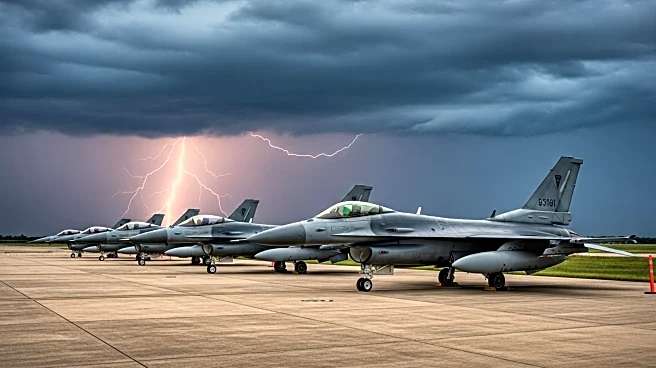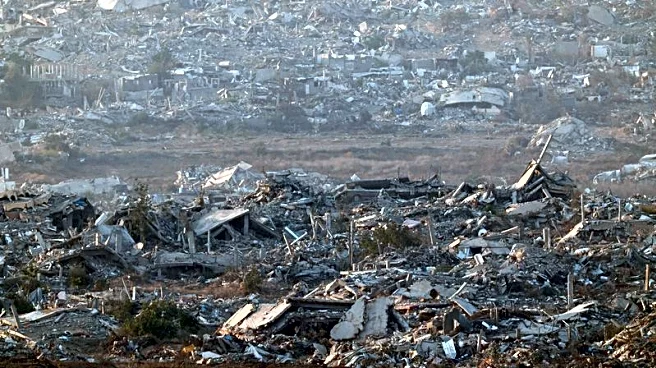What's Happening?
Russia launched a series of missile and drone attacks on Ukraine, focusing on the western city of Lviv, which is close to the Polish border. The strikes resulted in the deaths of five people, including four in Lviv and one in Zaporizhzhia. In response, Poland scrambled fighter jets to secure its airspace, with NATO aircraft also deployed. Ukrainian President Volodymyr Zelensky reported that Russia fired over 50 missiles and around 500 drones targeting infrastructure across several regions, including Ivano-Frankivsk, Chernihiv, Sumy, Kharkiv, Kherson, Odesa, and Kirovohrad. The attacks have left parts of Lviv without power, and public transport in some areas has been delayed.
Why It's Important?
The escalation of Russian attacks on Ukraine's infrastructure highlights the ongoing conflict's impact on civilian life and regional security. Poland's decision to scramble jets underscores the heightened tensions and the potential for broader regional involvement, given the proximity to NATO countries. The strikes on energy infrastructure are particularly concerning as they threaten to disrupt essential services ahead of winter, exacerbating the humanitarian crisis. The situation also raises questions about the effectiveness of current defense agreements and the need for enhanced air defense capabilities to protect civilians and critical infrastructure.
What's Next?
The international community, particularly NATO allies, may need to reassess their defense strategies and support for Ukraine in light of these developments. There could be increased diplomatic efforts to negotiate a ceasefire or enhance military aid to Ukraine. Poland and other neighboring countries might strengthen their air defense systems and increase surveillance to prevent further airspace violations. The ongoing conflict may also prompt discussions on the long-term security architecture in Eastern Europe, considering the risks posed by Russian aggression.
Beyond the Headlines
The attacks on Ukraine's infrastructure could have long-term implications for the country's economic recovery and stability. The destruction of energy facilities may lead to increased reliance on foreign aid and complicate efforts to rebuild. Additionally, the conflict's impact on civilian life could lead to increased migration and displacement, affecting neighboring countries. The situation also raises ethical questions about the targeting of civilian infrastructure and the broader humanitarian impact of the conflict.











